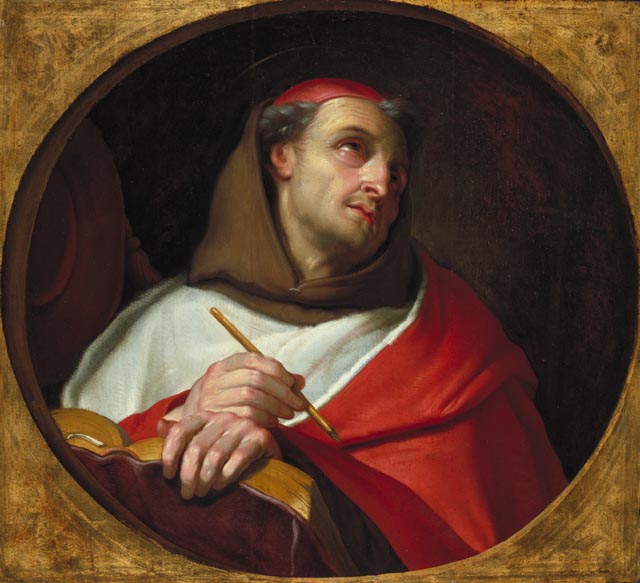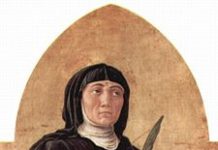
(The young Josef Ratzinger completed his doctorate on the thought of Saint Bonaventure, and his devotion is evinced by his giving not just one, but three full addresses on the great Franciscan. So these are personal for the former pontiff and, as he says, nostalgic. We would do well to ponder them on this feast).
BENEDICT XVI
GENERAL AUDIENCE
Paul VI Audience Hall
Wednesday, 3 March 2010
Saint Bonaventure
Dear Brothers and Sisters,
Today I would like to talk about St Bonaventure of Bagnoregio. I confide to you that in broaching this subject I feel a certain nostalgia, for I am thinking back to my research as a young scholar on this author who was particularly dear to me. My knowledge of him had quite an impact on my formation. A few months ago, with great joy, I made a pilgrimage to the place of his birth, Bagnoregio, an Italian town in Lazio that venerates his memory.
St Bonaventure, in all likelihood born in 1217, died in 1274. Thus he lived in the 13th century, an epoch in which the Christian faith which had deeply penetrated the culture and society of Europe inspired imperishable works in the fields of literature, the visual arts, philosophy and theology. Among the great Christian figures who contributed to the composition of this harmony between faith and culture Bonaventure stands out, a man of action and contemplation, of profound piety and prudent government.
He was called Giovanni di Fidanza. An episode that occurred when he was still a boy deeply marked his life, as he himself recounts. He fell seriously ill and even his father, who was a doctor, gave up all hope of saving him from death. So his mother had recourse to the intercession of St Francis of Assisi, who had recently been canonized. And Giovanni recovered.
The figure of the Poverello of Assisi became even more familiar to him several years later when he was in Paris, where he had gone to pursue his studies. He had obtained a Master of Arts Diploma, which we could compare with that of a prestigious secondary school in our time. At that point, like so many young men in the past and also today, Giovanni asked himself a crucial question: “What should I do with my life?”. Fascinated by the witness of fervour and evangelical radicalism of the Friars Minor who had arrived in Paris in 1219, Giovanni knocked at the door of the Franciscan convent in that city and asked to be admitted to the great family of St Francis’ disciples. Many years later he explained the reasons for his decision: he recognized Christ’s action in St Francis and in the movement he had founded. Thus he wrote in a letter addressed to another friar: “I confess before God that the reason which made me love the life of blessed Francis most is that it resembled the birth and early development of the Church. The Church began with simple fishermen, and was subsequently enriched by very distinguished and wise teachers; the religion of Blessed Francis was not established by the prudence of men but by Christ” (Epistula de tribus quaestionibus ad magistrum innominatum, in Opere di San Bonaventura. Introduzione generale, Rome 1990, p. 29).
(To continue reading, please see here).










